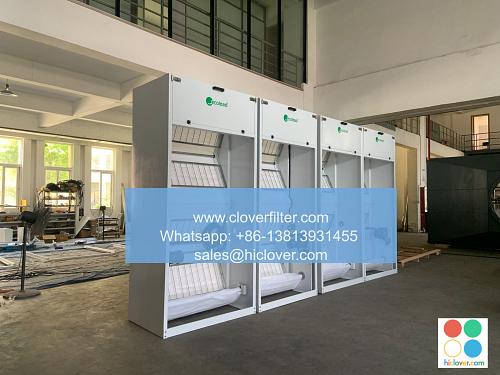Why Air Filter Surveys Matter for Indoor Air Quality

Air filter surveys are a crucial aspect of maintaining good indoor air quality (IAQ) in various settings, including residential, commercial, and industrial spaces. These surveys help assess the effectiveness of air filtration systems, identifying areas for improvement and ensuring that the air is clean and healthy to breathe. In this article, we will discuss the importance of air filter surveys, their application areas, and the benefits they provide in maintaining optimal IAQ.
What are Air Filter Surveys?
Air filter surveys involve a comprehensive evaluation of an air filtration system’s performance, including its ability to remove airborne pollutants, such as particulate matter (PM), gases, and volatile organic compounds (VOCs). These surveys typically include on-site inspections, laboratory testing, and data analysis to determine the system’s efficiency and identify potential issues.
Application Areas of Air Filter Surveys
Air filter surveys are essential in various settings, including:
– Residential buildings: to ensure good IAQ and prevent health problems associated with poor air quality, such as asthma and allergies.
– Commercial spaces: to maintain a healthy and productive work environment, reducing the risk of absenteeism and improving employee well-being.
– Industrial facilities: to prevent occupational hazards and ensure compliance with regulatory standards, such as those set by the Occupational Safety and Health Administration (OSHA).
– Hospitals and healthcare facilities: to prevent the spread of airborne infections and maintain a sterile environment, critical for patient care and safety.
– Schools and educational institutions: to provide a healthy learning environment, essential for students’ cognitive development and academic performance.
Benefits of Air Filter Surveys
Regular air filter surveys offer numerous benefits, including:
– Improved indoor air quality: by identifying and addressing issues with air filtration systems, surveys help maintain optimal IAQ, reducing the risk of health problems and improving overall well-being.
– Increased energy efficiency: by optimizing air filtration systems, surveys can help reduce energy consumption, leading to cost savings and a reduced carbon footprint.
– Extended equipment lifespan: regular surveys and maintenance can help extend the lifespan of air filtration equipment, reducing the need for premature replacements and minimizing waste.
– Compliance with regulations: air filter surveys help ensure compliance with relevant regulations, such as those related to IAQ, occupational health, and environmental protection.
Conducting Effective Air Filter Surveys
To conduct effective air filter surveys, it is essential to:
– Hire experienced professionals: with expertise in IAQ, air filtration, and survey methodologies.
– Use specialized equipment: such as particle counters, gas detectors, and airflow meters, to collect accurate data.
– Analyze data thoroughly: to identify trends, patterns, and areas for improvement.
– Develop targeted recommendations: to address issues and optimize air filtration systems.
Conclusion
In conclusion, air filter surveys are a critical component of maintaining good indoor air quality in various settings. By conducting regular surveys, individuals and organizations can ensure that their air filtration systems are functioning effectively, providing a healthy and safe environment for occupants. Whether in residential, commercial, or industrial spaces, air filter surveys are essential for preventing health problems, improving energy efficiency, and reducing environmental impact. As the importance of IAQ continues to grow, the role of air filter surveys will become increasingly vital in maintaining optimal air quality and promoting a healthier, more sustainable future. You haven’t asked a question or provided any context. What would you like to talk about?

